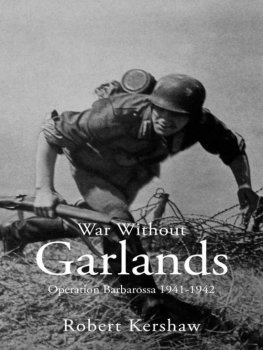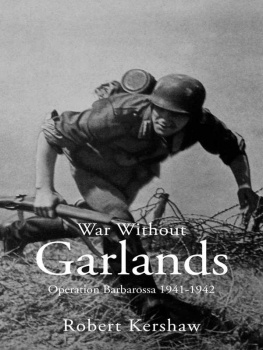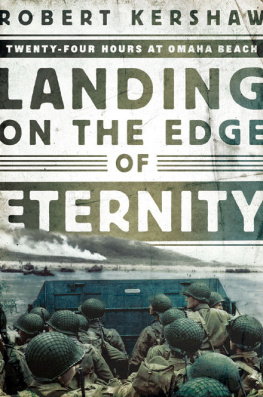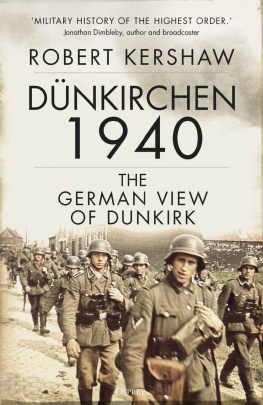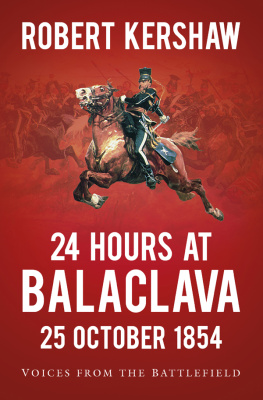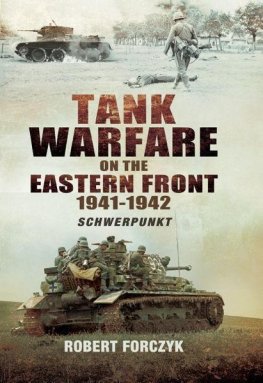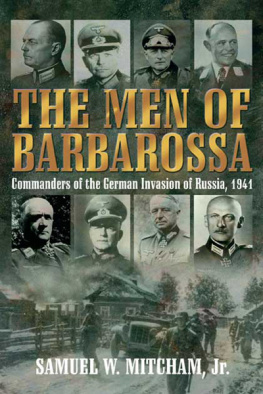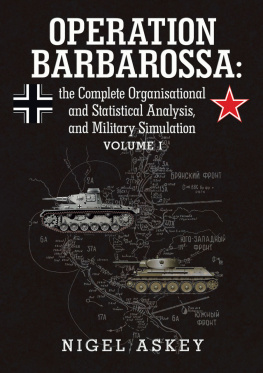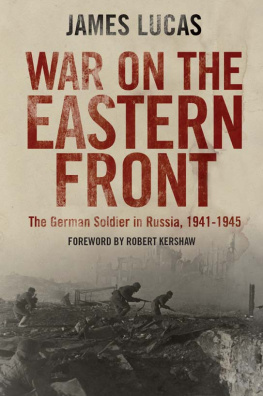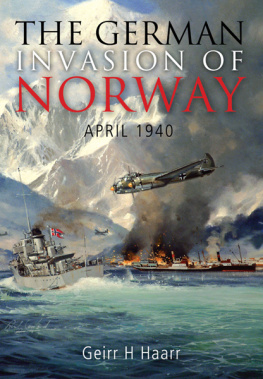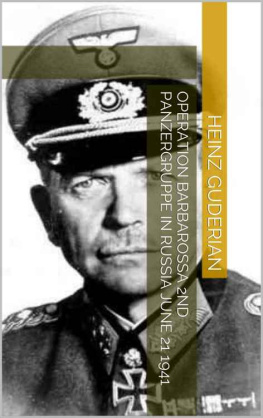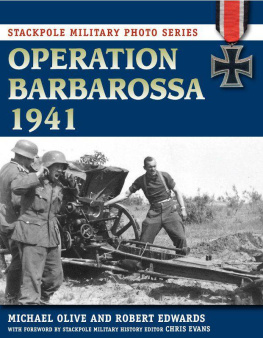Robert Kershaw - War Without Garlands
Here you can read online Robert Kershaw - War Without Garlands full text of the book (entire story) in english for free. Download pdf and epub, get meaning, cover and reviews about this ebook. City: Hersham, year: 2010, publisher: Ian Allan Publishing, genre: History. Description of the work, (preface) as well as reviews are available. Best literature library LitArk.com created for fans of good reading and offers a wide selection of genres:
Romance novel
Science fiction
Adventure
Detective
Science
History
Home and family
Prose
Art
Politics
Computer
Non-fiction
Religion
Business
Children
Humor
Choose a favorite category and find really read worthwhile books. Enjoy immersion in the world of imagination, feel the emotions of the characters or learn something new for yourself, make an fascinating discovery.
- Book:War Without Garlands
- Author:
- Publisher:Ian Allan Publishing
- Genre:
- Year:2010
- City:Hersham
- ISBN:978-07110-3590-1
- Rating:4 / 5
- Favourites:Add to favourites
- Your mark:
- 80
- 1
- 2
- 3
- 4
- 5
War Without Garlands: summary, description and annotation
We offer to read an annotation, description, summary or preface (depends on what the author of the book "War Without Garlands" wrote himself). If you haven't found the necessary information about the book — write in the comments, we will try to find it.
War Without Garlands — read online for free the complete book (whole text) full work
Below is the text of the book, divided by pages. System saving the place of the last page read, allows you to conveniently read the book "War Without Garlands" online for free, without having to search again every time where you left off. Put a bookmark, and you can go to the page where you finished reading at any time.
Font size:
Interval:
Bookmark:
Robert Kershaw
WAR WITHOUT GARLANDS
Operation Barbarossa 19411942
This book is dedicated to my three sons
Christian, Alexander and Michael
Glossary, Abbreviations, Rank Comparisons




Introduction
Nobody has written a definitive soldiers account of Operation Barbarossa. Academic historians and survivors writing on the Russo-German war of 194145 generally concentrate on military operations and have often ducked uncomfortable moral issues, or concentrated on one area to the exclusion of the other. I read with interest Paul Kohls comments retracing the footprints of the invading Army Group Centre during a historical pilgrimage through Russia in the 1980s.(1) Of 35 Wehrmacht veterans he contacted to assist in the project, only three admitted to having participated in excesses during the conflict. At the other end of the extreme is the Vernichtungskrieg (War of Annihilation) public exhibition travelling the length and breadth of present-day Germany seeking to publicise and lay clear blame for war guilt on the Wehrmacht. The significance is that the present-day Bundeswehr (the Federal Republic of Germanys Army) developed from the Wehrmacht after the war. There is no shortage of epic and heroic tales from German survivors, who rarely saw an atrocity. Conversely the equally stirring Russian rhetoric of the Great Patriotic War tells a similar tale of heroism from a political and ideological perspective. An honest account is that of a Wehrmacht veteran who admitted during a TV interview, if some people say that most Germans were innocent, I would say they were accomplices.(2)
There are varying degrees of accountability in war and they need to be examined. War guilt has been painstakingly examined by social democratic academics assessing the culpability of American soldiers fighting in Vietnam, Frenchmen during post-colonial conflicts in Algeria and the British in the Falklands. Moral issues are not as black and white as some learned authors would have us believe. Even UN and NATO soldiers have recently discovered in the Balkans that moral responsibility during conflict is a little blurred around the edges. The Russo-German war was fought between two totalitarian and ideologically motivated enemies, which produced a degree of peer pressure upon combatants, frequently misunderstood by modern democratic historians who have never experienced it. Helmut Schmidt, a former German war veteran and later German Chancellor, once rounded on academic historians during a newspaper interview, pointing out they should not accept every document suggesting war guilt at face value.(3) Not every German at the front, he insisted, was a witness to atrocities.
Documents are truths in the purist sense. Perception is also truth because it is an imperative that causes us to act. This is then why attempts are made in this book, through personal, letter and diary accounts, to narrate, observe and identify the beliefs and concerns that motivated the soldiers. They are about perceptions that became truths in themselves.
How can one explain or indeed reconcile the Christian statements of soldiers, seemingly decent men, about to go to war, with the systematic maltreatment and murder of Soviet PoWs and non-combatants? That war is a brutal process and corrupts its participants is not the sole explanation. There was an undercurrent of emotion impacting on incidents that caused brave men to act in a criminal way. Only by viewing these snapshots of experience can one identify the emotions, perceptions and motivation of soldiers fighting a pitiless war in a strange land. The title War Without Garlands is a play on a Landser expression used to describe this war. Soldiers referred to it as Kein Blumenkrieg, a war without flowers. Quite literally flowers were not thrown in salute by an adoring public, as in the case of triumphant parades in Berlin, acknowledging Blitzkrieg victories after the campaign in the West.
This book accepts that war is an intensely personal experience. Memories of conflict come in momentary glimpses or snapshots, and that is the style adopted. Concentrating on the five human senses brings a form of immediacy to the events being narrated. In addition, one must assess the soldiers psyche through a medium of practical experience, placing ideological influences within a rational perspective. This is attempted by interpreting extensive diary and letter accounts.
It is important to measure the impact of these events, because, of some 19 to 20 million soldiers who fought for the Wehrmacht, about 1719 million fought in Russia. These men were to form the basis of the future state established in present-day Germany, numbered among the most enlightened and democratic in the world. The book is an examination of the beginnings of a crucible of experience that was to influence these men throughout their adult lives.
The spelling of individual personalities and place names has been difficult to unravel from the multiplicity of Russian, German and English sources through which I worked. Many of the latter have changed since the end of the war. In general I have used the English version or German in the absence of an alternative.
Every effort has been made to trace the source and copyright holders of the maps and illustrations appearing in the text, and these are acknowledged where appropriate. Most are my own. Similarly the author wishes to thank those publishers who have permitted the quotation of extracts from their books. Quotation sources are annotated in the notes that follow the text. My apologies are offered in advance to those with whom, for any reason, I have been unable to establish contact.
I am particularly indebted for information and documents provided by Bundeswehr colleagues and contacts from within various NATO HQs, who assisted in the books long research and gestation period. My thanks also go to: the Panzerschule at Mnsterlager and the Pionierschule at Munich; to Herr Michael Wechtler for access to a remarkable collection of documents and an informative 45th Division video chronicling the fall of Brest-Litovsk and to Dr Kehrig from the Bundesarchiv at Freiburg who assisted with important contacts, including Franz Steiner who enabled access to information and former members of the 2nd (Vienna) Panzer Division. Sheila Watson, my agent, has been very patient, gently reminding me during a series of overseas postings and operational tours that this book will never finish of its own accord.
My wife Lynn enabled the project to come to fruition by supporting me throughout. In typing the manuscript she applied her impressive eye for detail, clarity and grammatical accuracy. Any errors remaining are those I refused to change!
Without her, this book would quite simply never have been written.
Robert KershawSalisbury, 2000Chapter 1
The world will hold its breath
I can imagine the surprise and, at the same moment, dread that will overcome you all. But you need have no worries, everything is so well prepared here, hardly anything can go wrong.
Gefreiter, artillery regimentSaturday, 21 June 1941
Font size:
Interval:
Bookmark:
Similar books «War Without Garlands»
Look at similar books to War Without Garlands. We have selected literature similar in name and meaning in the hope of providing readers with more options to find new, interesting, not yet read works.
Discussion, reviews of the book War Without Garlands and just readers' own opinions. Leave your comments, write what you think about the work, its meaning or the main characters. Specify what exactly you liked and what you didn't like, and why you think so.

